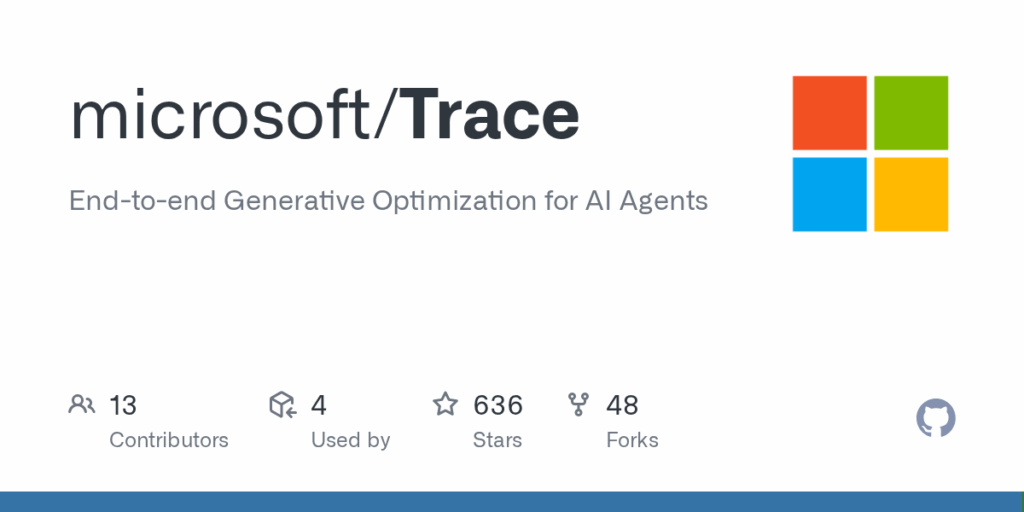Trace
Basic Information
Trace is an AutoDiff-like research library and platform for end-to-end generative optimization of AI systems using rich, general feedback. It captures and propagates an execution trace of Python code so developers can mark parts of programs as trainable and optimize them with feedback signals that can be numerical rewards, natural language text, or other diagnostics. The project implements a PyTorch-like API with primitives such as node and bundle and supports writing executable Python functions as the computational workflow. It is intended to reproduce the experiments from the accompanying Trace paper and to enable researchers and developers to build self-improving agents and optimization pipelines. The package is installable via pip, requires Python 3.9 or later, and is provided as a beta research tool with documentation, tutorials, and compatibility with LLM backends for feedback and optimization.








